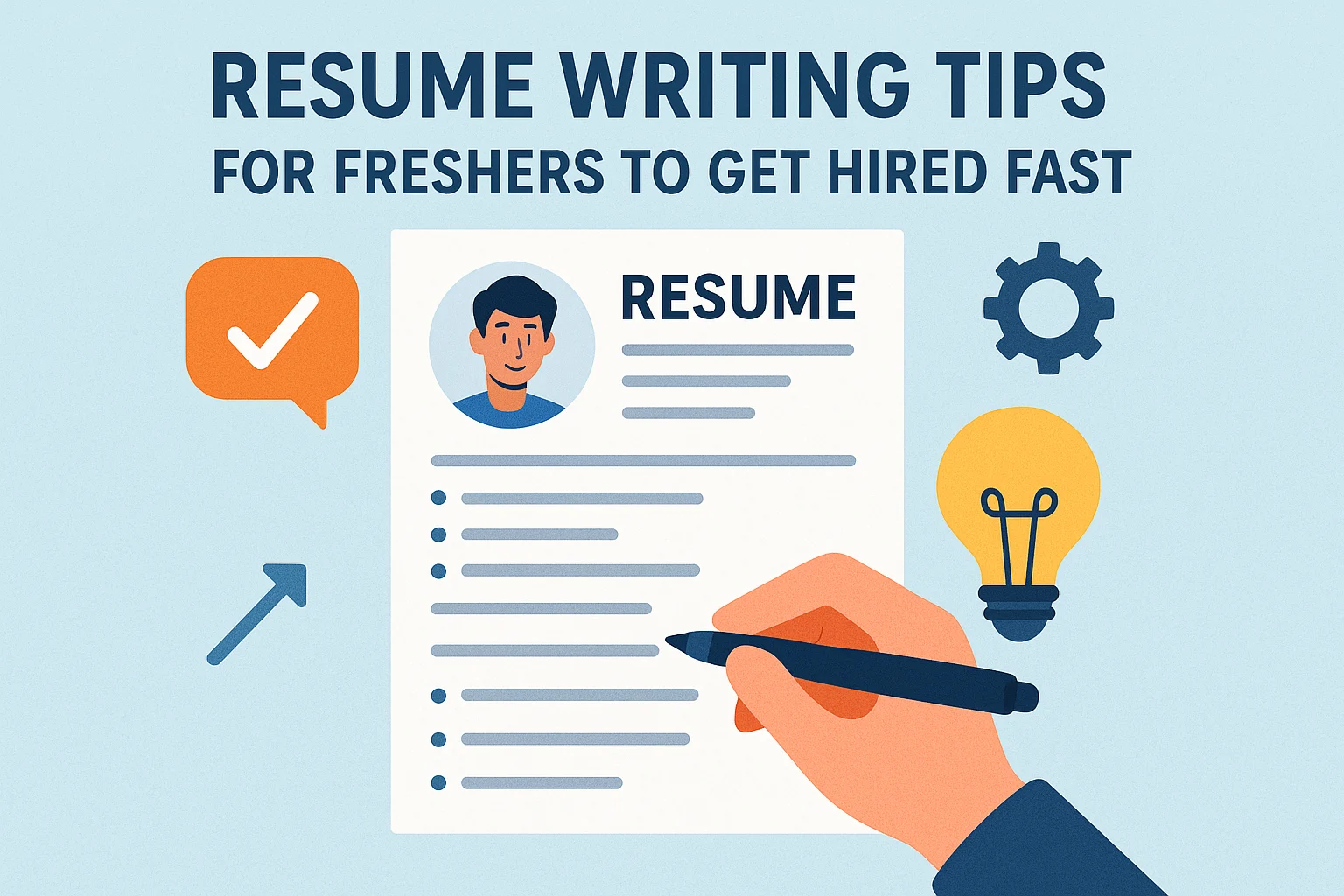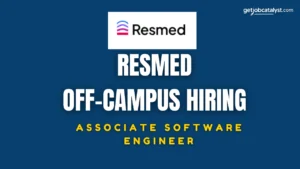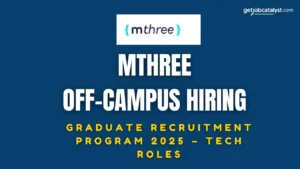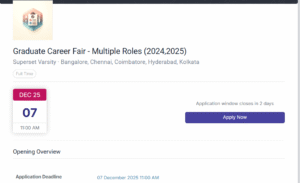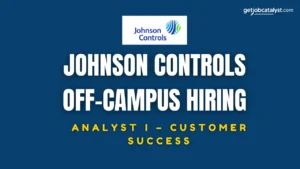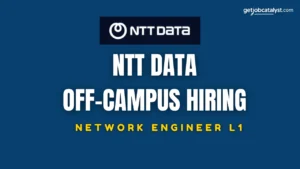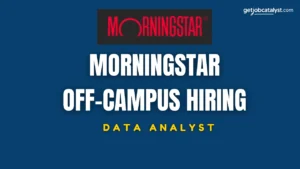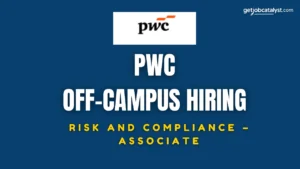Introduction – Why a Strong Resume Matters for Freshers
Resume Writing Tips for Freshers to Get Hired Fast are essential if you want to land your first job quickly. As a fresher, your resume is often the only thing standing between you and your dream interview. A strong resume not only showcases your skills and education but also convinces recruiters that you have the potential to succeed, even without prior experience.
When you’re just stepping out of college and into the job market, your resume becomes your most powerful weapon. Unlike experienced professionals, freshers don’t usually have years of work history to showcase. That’s why employers primarily rely on your resume to gauge your potential. It’s the very first impression you make—before you even get a chance to speak to the recruiter.
Think of your resume as your personal marketing tool. It’s like an advertisement that highlights your skills, education, and achievements in a way that convinces employers to give you a shot. A weak resume, even if you’re a brilliant candidate, can keep you from landing interviews. On the flip side, a strong, well-structured resume can open doors even in highly competitive industries.
The biggest mistake freshers make is either underestimating the importance of a resume or overloading it with irrelevant information. Many simply list their academic background and leave out projects, internships, or extracurricular achievements that could set them apart. Recruiters don’t want to see a boring list—they want to see potential, enthusiasm, and skills that align with the job role.
In today’s fast-paced hiring world, where employers often receive hundreds of applications for a single job posting, your resume has just 6–8 seconds to grab attention. That’s right—recruiters scan resumes at lightning speed. If your resume isn’t clear, tailored, and compelling, it might end up in the reject pile before anyone reads beyond the first few lines.
So, if you’re a fresher who’s eager to land your first job quickly, you need a resume that speaks volumes about your abilities, even if you don’t have much experience. This guide will walk you through proven resume writing tips, from choosing the right format to using keywords that beat applicant tracking systems. By the end, you’ll have the confidence and tools to create a resume that not only gets noticed but also gets you hired—fast.
Understanding the Basics of Resume Writing
Before jumping into the details of formatting and styling, it’s important to understand what a resume actually represents. At its core, a resume is a snapshot of your professional identity. For freshers, this includes your education, skills, projects, internships, and any other experiences that demonstrate your readiness to take on a role.
What do recruiters really look for in a fresher’s resume? It’s not about years of work experience, but about potential. Recruiters want to see whether you can adapt, learn quickly, and contribute value. They want to know if your academic background and skill set align with the job requirements. More importantly, they want to feel confident that hiring you won’t be a risk.
One critical aspect freshers often overlook is tailoring their resumes. Sending out the same generic resume to 50 different companies is one of the fastest ways to get ignored. Recruiters can instantly spot a resume that hasn’t been customized for their job role. Instead, you should carefully read the job description and adjust your resume accordingly. For instance, if a company is looking for someone with strong data analysis skills, highlight your related coursework, projects, or tools you’ve mastered in that domain.
Another important thing to note is that resumes should not be a life story. Many freshers get tempted to include everything—from high school achievements to unrelated hobbies. But here’s the truth: irrelevant information can dilute the impact of your resume. Keep it focused, relevant, and professional. Think of it as a movie trailer that excites the recruiter enough to want to watch the full film (your interview).
In short, the basics of resume writing for freshers boil down to three things: clarity, relevance, and customization. Get these right, and you’ll already be ahead of most other candidates applying for the same job.
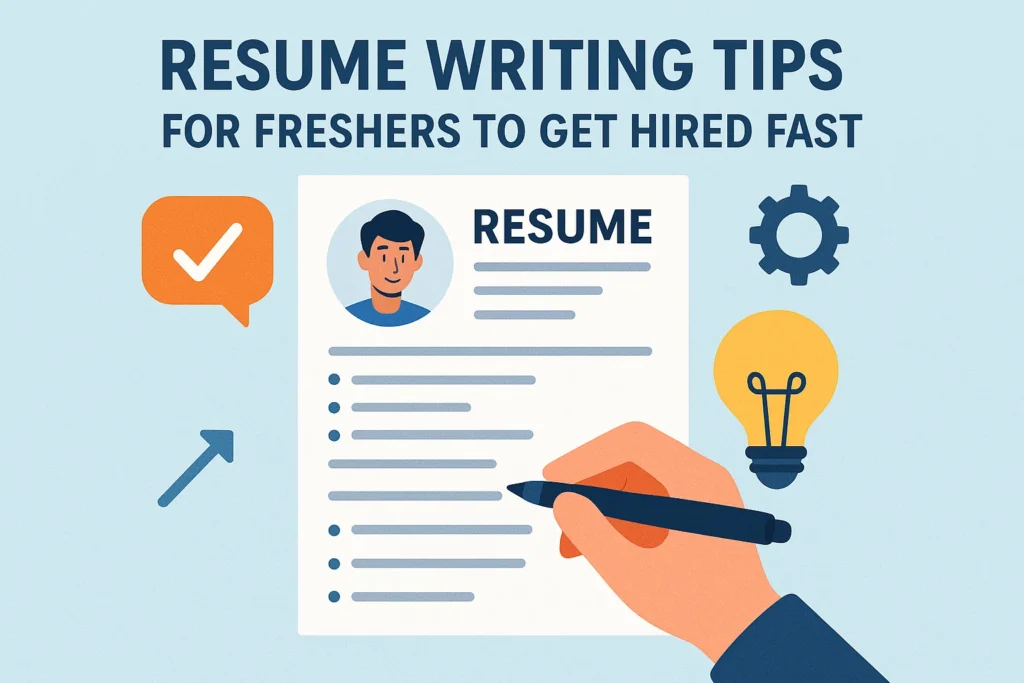
Choosing the Right Resume Format
One of the most underrated yet crucial decisions in resume writing is selecting the right format. The format you choose can either highlight your strengths or accidentally expose your weaknesses. For freshers, this decision is even more important because you don’t have years of professional experience to fall back on.
There are three main types of resume formats:
- Chronological Resume: This format lists your experiences in reverse order, starting with the most recent. It’s great for candidates with a strong work history but not always ideal for freshers.
- Functional Resume: This format focuses on skills rather than work experience. It’s useful for freshers because it highlights abilities, projects, and internships rather than professional job history.
- Combination Resume: As the name suggests, this combines both chronological and functional elements. It allows freshers to showcase skills while also including internships or part-time jobs in a structured manner.
For most freshers, the functional or combination format works best. Why? Because it puts the spotlight on what really matters—your skills, education, and relevant projects—without making your lack of full-time experience too obvious.
Another pro tip is to keep the format simple and professional. You don’t need fancy graphics, images, or over-the-top designs unless you’re applying for a creative role like graphic design. Many companies use Applicant Tracking Systems (ATS) to scan resumes, and complex designs or unusual formats can confuse these systems, leading to rejection before a human even sees your resume.
In essence, your resume format should work for you, not against you. Choose one that highlights your strengths, keeps things organized, and ensures your resume is both ATS-friendly and recruiter-friendly.
Crafting a Compelling Resume Header
Your resume header is the very first thing a recruiter sees, yet it’s often the most overlooked section. Think of it as your resume’s business card—it needs to be precise, professional, and informative without unnecessary details.
At the very minimum, your header should include:
- Full name (bold and easy to read)
- Phone number (with country code if applying internationally)
- Professional email address (avoid casual ones like cooldude123@gmail.com)
- LinkedIn profile link (optional but recommended)
- Portfolio link (if applicable, especially for tech, writing, or creative jobs)
Many freshers make the mistake of adding irrelevant personal details like full home address, marital status, or even date of birth. These are unnecessary and can sometimes even lead to bias. Instead, stick to professional essentials only.
Another common error is clutter. Some resumes squeeze too much into the header, making it look messy. Remember, simplicity is key. Use a clean layout where your name stands out at the top, followed by contact details neatly arranged.
If you have an online portfolio, GitHub profile, or even a personal blog that showcases your expertise, include it in the header. It instantly makes you look more professional and serious about your career.
The header might seem like a small detail, but in reality, it sets the tone for your entire resume. A clear, professional header tells recruiters you’ve paid attention to detail—something they value highly in freshers.
Writing a Powerful Resume Objective or Summary
One of the most debated sections of a resume is the objective or summary statement. Should freshers include it? The answer is yes—but only if it’s written the right way.
A resume objective is a short statement at the top of your resume that explains your career goals and what you’re seeking from a job. A resume summary, on the other hand, is a brief highlight of your skills, achievements, and qualifications.
For freshers, a resume objective works better because you’re just starting out and need to communicate your enthusiasm and willingness to learn. But avoid generic lines like “Looking for a challenging role in a reputed organization.” These clichés add no value.
Instead, craft objectives that are specific, tailored, and highlight what you bring to the table. For example:
- “Recent computer science graduate with strong programming and problem-solving skills seeking a software developer role where I can apply my knowledge of Python and Java.”
- “Business administration fresher with internship experience in marketing, eager to contribute to brand growth through digital marketing and data analysis.”
If you’ve done internships or projects that are highly relevant, you can also opt for a resume summary instead of an objective. This works especially well if you’re targeting roles where you already have some practical exposure.
Whichever option you choose, keep it short—2 to 3 sentences max. This section is like your elevator pitch, so make every word count.
Highlighting Your Education Section Effectively
For freshers, the education section is often the strongest part of the resume, so it needs to be presented in a way that highlights your strengths. Recruiters understand that you don’t yet have years of work experience, so they pay close attention to your academic achievements and how you showcase them.
Start with your most recent degree and work backward. For example, if you’ve just completed a bachelor’s degree, list it first, followed by your high school details if necessary. Include the degree name, institution, year of graduation, and percentage or GPA (only if it’s impressive). If your grades are average, you can omit them and instead highlight projects or coursework that demonstrate your capabilities.
Don’t just stop at listing your degrees. This is where you can stand out by adding relevant coursework, research papers, and academic projects. For instance, if you’re applying for a job in software development, mentioning that you worked on a final-year project involving app development or machine learning can make your resume much more attractive. Similarly, a marketing fresher could highlight coursework in digital marketing, consumer behavior, or market research.
Also, if you’ve received scholarships, awards, or participated in academic competitions, this is the place to mention them. Employers love to see initiative and recognition, even if it’s in an academic setting. These details show you have a track record of excellence and commitment.
One common mistake freshers make is overcrowding this section with too much information. Keep it relevant and tailored to the job. For example, a recruiter hiring for a data analyst role won’t be too interested in the fact that you were part of a school debate club, but they will definitely want to see if you studied statistics, data visualization, or SQL.
In short, treat your education section as more than just a list of degrees. Make it a showcase of your academic potential, projects, and achievements that align with the role you’re applying for.
Showcasing Skills that Employers Value
Skills are the heart of a fresher’s resume. Since you don’t have years of professional experience, your skills act as proof of what you bring to the table. But here’s the catch—simply listing skills won’t cut it. You need to carefully choose and present them in a way that matches what recruiters are actually looking for.
There are two types of skills you should highlight:
- Hard Skills: These are technical or job-specific abilities you’ve learned through education, training, or practice. Examples include programming languages (Python, Java, C++), graphic design tools (Photoshop, Canva), data analysis (Excel, SQL), or digital marketing techniques (SEO, Google Ads).
- Soft Skills: These are personal traits and interpersonal abilities that help you succeed in any workplace. Examples include communication, problem-solving, teamwork, adaptability, and leadership.
The mistake many freshers make is overloading their resumes with generic soft skills like “hardworking,” “team player,” or “dedicated.” While these qualities are important, they sound vague unless backed up with examples. Instead, use skills that directly relate to the job description.
For example, if the job posting highlights “strong analytical skills,” make sure to include that as a skill but also show proof in your projects or coursework. If the role requires “communication skills,” mention presentations, group projects, or leadership roles in clubs that demonstrate this ability.
To make your skills section stand out, consider dividing it into two categories: Technical Skills and Interpersonal Skills. This makes it easier for recruiters to quickly scan and find what they’re looking for.
Finally, always tailor your skills to the role. If you’re applying for a digital marketing job, prioritize SEO, content creation, and analytics. If it’s a software engineering role, highlight coding languages and frameworks. Customization is what sets apart a strong resume from a generic one.
Work Experience and Internships – Making the Most of Limited Experience
Freshers often feel anxious about the experience section because they believe they have nothing significant to showcase. But here’s the good news: employers don’t expect you to have years of corporate experience. What they do want to see is initiative, practical exposure, and the ability to apply your knowledge.
If you’ve done internships, even short-term ones, highlight them in detail. Instead of just writing “Intern at XYZ Company,” explain what you did and how it added value. For instance:
- “Worked as a marketing intern at XYZ Company, where I assisted in social media campaigns, increased engagement by 20%, and conducted competitor analysis.”
- “Completed a software development internship where I developed a small module for a client application using Python and Django.”
Even part-time jobs, volunteering, or campus roles can be added here. For example, being part of the organizing committee for a college fest shows event management and teamwork skills. Volunteering for NGOs demonstrates responsibility and social commitment. These experiences may not be full-time jobs, but they showcase skills employers value.
Another tip is to quantify your contributions. Numbers instantly make your experience look more credible. Saying “helped improve efficiency” is vague, but “automated data entry processes, reducing completion time by 30%” is impactful.
If you truly don’t have any internships or relevant part-time jobs, focus on academic projects, hackathons, online courses, or freelance work you may have done. Employers are more interested in your ability to learn and apply than in a long work history.
So, instead of worrying about limited experience, frame whatever you have in a way that highlights your skills and eagerness to contribute.
Adding Projects and Certifications to Stand Out
When you’re a fresher, projects and certifications can be your secret weapon to grab attention. They show that you’re not just sitting back relying on your degree—you’ve taken the initiative to learn more and apply your knowledge.
Academic projects are particularly valuable because they demonstrate practical application of what you’ve studied. If you’ve worked on a capstone project, research paper, or group assignment that is relevant to the job, make sure to include it. For instance:
- “Developed a mobile application for expense tracking using Java and Firebase as part of final-year project.”
- “Conducted a market research study on consumer preferences for eco-friendly products, surveying 200+ respondents and presenting insights.”
Beyond academics, if you’ve done personal or freelance projects, add them too. For example, if you’re an aspiring graphic designer, include the portfolio of designs you’ve created. If you’re into coding, mention a GitHub repository where you’ve uploaded your projects.
Certifications are another powerful addition. Employers love candidates who upskill outside of college. Certifications from platforms like Coursera, Udemy, edX, or LinkedIn Learning can give you an edge. For instance, certifications in Google Analytics, AWS, or project management can make your resume stand out.
When listing projects and certifications, avoid just writing their names. Briefly describe what you did and what you learned. Also, ensure they are relevant to the job you’re applying for. A certificate in cooking is great, but it won’t help much if you’re applying for an IT job.
In summary, projects and certifications can bridge the gap between being a student and becoming a professional. They prove that you’re proactive, skilled, and serious about building a career.
Importance of Keywords and ATS Optimization
Here’s a harsh reality: most resumes don’t even make it to a human recruiter’s desk. Instead, they get filtered out by Applicant Tracking Systems (ATS)—software used by companies to scan resumes for keywords. If your resume doesn’t include the right keywords, it could be rejected automatically, no matter how good you are.
ATS works by scanning resumes for matches with the job description. For example, if the job description mentions “data analysis,” “SQL,” and “Excel,” the system will look for those exact terms in your resume. If they’re missing, your resume might never be seen by a recruiter.
So how do you beat the ATS? The answer is keyword optimization. Start by carefully reading the job posting. Highlight the important skills, qualifications, and tools mentioned. Then, naturally include these terms in your resume—in your skills, experience, and project sections.
For example, instead of writing “worked on databases,” say “worked with SQL and MySQL databases.” Instead of just “digital marketing,” specify “SEO, Google Ads, and social media marketing.”
But here’s a warning—don’t overstuff your resume with keywords. Recruiters can tell when someone is trying to game the system. The key is to balance relevance with readability.
Optimizing for ATS ensures your resume makes it past the first digital filter. From there, a recruiter will evaluate it, so make sure it’s not just keyword-rich but also well-structured and impactful.
Keeping the Resume Concise and Impactful
One of the biggest mistakes freshers make is turning their resume into a mini-autobiography. Recruiters don’t have the time—or patience—to read through long, cluttered resumes. In fact, studies show that most recruiters spend less than 10 seconds scanning a resume before deciding whether to move forward with a candidate. That means every word on your resume needs to work in your favor.
For freshers, the ideal resume length is one page. Two pages may be acceptable only if you have multiple internships, projects, or certifications to showcase, but anything beyond that is overkill. Remember, the goal is to grab attention and spark interest, not to tell your entire life story.
To make your resume concise yet powerful, follow these tips:
- Use bullet points instead of long paragraphs. This improves readability and ensures recruiters can quickly scan through your achievements.
- Start each bullet point with an action verb. Words like designed, developed, analyzed, improved, created, or led sound much stronger than vague terms like helped or assisted.
- Focus on results, not responsibilities. Instead of writing “Responsible for managing social media,” say “Increased Instagram engagement by 25% through creative campaigns.”
- Eliminate fluff. Phrases like “hardworking individual seeking an opportunity” don’t add value. Replace them with concrete skills and accomplishments.
- Prioritize relevance. Tailor your resume for each job application by placing the most relevant skills, projects, and coursework at the top.
Think of your resume as a movie trailer. A trailer doesn’t reveal every scene—it shows the best highlights that make people want to watch the film. Similarly, your resume should highlight your best achievements and skills, leaving the recruiter curious enough to call you for an interview.
Conciseness doesn’t mean cutting out important details—it means packaging them in a way that’s short, sharp, and compelling. By doing this, you’ll not only respect the recruiter’s time but also maximize your chances of making a lasting impression.
Formatting and Design Guidelines
Your resume’s content is crucial, but how it looks is just as important. A poorly formatted resume can turn off recruiters instantly, no matter how impressive your qualifications are. The design should be professional, clean, and easy to read—not flashy or overdone.
Here are some key formatting tips for freshers:
Fonts and Layout
- Stick to simple fonts like Arial, Calibri, or Times New Roman. Avoid fancy or hard-to-read fonts.
- Use a font size of 10–12 points for body text and 14–16 points for your name in the header.
- Maintain consistent formatting for headings, subheadings, and bullet points.
Spacing and Alignment
- Keep adequate white space. Crowded resumes look overwhelming and discourage reading.
- Align text neatly. Left alignment works best for readability.
- Use bullet points to organize details instead of long blocks of text.
Colors and Style
- Stick to black text on a white background for a professional look.
- If you want a slight creative touch, use one accent color (like blue or gray) for headings or lines. Avoid multiple colors.
- Do not include photos unless specifically asked (common in some countries but unnecessary in most).
Sections Order
For freshers, a good order would be:
- Header
- Resume Objective/Summary
- Education
- Skills
- Projects/Internships
- Certifications
- Extracurricular Activities (optional)
Length and Structure
- Keep it one page unless absolutely necessary.
- Use consistent margins (0.5–1 inch on all sides).
Remember, your resume’s format should complement your content, not distract from it. Think of formatting as the packaging of a product. If the packaging is neat and attractive, people are more likely to pay attention to what’s inside. Similarly, a well-formatted resume increases the chances of recruiters reading it fully instead of tossing it aside.
Proofreading and Error-Free Resume Writing
Imagine you’re a recruiter scanning through 200 resumes. You come across one with spelling mistakes, inconsistent grammar, and incorrect details. What would your first thought be? Most likely: “This candidate lacks attention to detail.” That’s why proofreading your resume is non-negotiable.
Even a single typo can make you look careless. For example, writing “manger” instead of “manager” could ruin your credibility instantly. Freshers, in particular, need to double-check their resumes because they’re already competing with candidates who may have stronger credentials.
Here are some tips for creating an error-free resume:
- Read aloud. Reading your resume aloud helps catch awkward phrasing and grammar mistakes.
- Print it out. Errors are often easier to spot on paper than on a screen.
- Use tools. Grammarly, Hemingway, and Microsoft Word’s spelling checker can help catch common errors.
- Check consistency. Ensure formatting, bullet points, font styles, and tense usage are consistent throughout.
- Verify details. Double-check your phone number, email address, and LinkedIn link. Wrong contact details could mean lost opportunities.
- Get a second opinion. Ask a friend, mentor, or career counselor to review your resume. A fresh set of eyes can spot things you may have missed.
Remember, recruiters interpret your resume as a reflection of your work ethic. If you’re careless with your resume, they may assume you’ll be careless at work too. On the flip side, a polished, error-free resume signals professionalism, attention to detail, and seriousness about the job.
Proofreading may seem like a small step, but it’s often the difference between your resume being shortlisted or discarded.
Attaching a Cover Letter with Your Resume
Many freshers wonder: “Do I really need a cover letter?” The answer is a resounding yes. While some recruiters may not always require one, sending a tailored cover letter along with your resume gives you an extra edge.
A cover letter allows you to showcase your personality, enthusiasm, and motivation for the role—things that a resume alone can’t convey. For freshers, this is particularly useful because you can explain why you’re passionate about the job even if you don’t have much professional experience.
Here’s what a strong fresher cover letter should include:
- Introduction: Mention who you are, the role you’re applying for, and where you found the job posting.
- Why You’re Interested: Explain why you’re excited about the company and the specific role. Show that you’ve done your research.
- What You Bring to the Table: Highlight your most relevant skills, projects, or internships that make you a good fit.
- Closing Statement: End with a confident line about looking forward to the opportunity to interview.
For example:
Instead of writing, “I want a job in your company because it is reputed,” you could say, “I admire your company’s innovative work in digital solutions and would love to contribute by applying my skills in data analysis and market research.”
Common mistakes to avoid include copying generic cover letter templates, being too formal or robotic, and simply repeating your resume. The cover letter should complement your resume, not duplicate it.
By attaching a personalized cover letter, you demonstrate effort, initiative, and genuine interest—all qualities that can make you stand out from hundreds of other freshers applying for the same job.
Following these resume writing tips for freshers to get hired fast, you’ll be able to stand out in a competitive job market
Final Checklist Before Submitting Your Resume
Before you hit “send” on your job application, take a moment to run through a final checklist. Think of this as a quality control step to ensure your resume is in top shape.
Here are some essential questions to ask yourself:
- Is my resume tailored? Does it match the job description with relevant skills and keywords?
- Is the format clean and professional? No unnecessary graphics, flashy fonts, or distracting elements?
- Is the content concise? One page long, with impactful bullet points instead of lengthy paragraphs?
- Is it error-free? Spelling, grammar, and formatting checked thoroughly?
- Is my contact information correct? No typos in phone number, email, or LinkedIn link?
- Did I include strong action verbs? Each bullet point should start with words like developed, created, managed, etc.
- Does it highlight my strengths as a fresher? Projects, internships, skills, and certifications clearly listed?
- Have I attached a cover letter? Customized for the specific job application?
It also helps to ask a trusted mentor, senior, or even a career counselor to review your resume before you submit it. Sometimes, small tweaks suggested by an experienced person can dramatically improve your chances.
Remember, submitting a resume isn’t just about applying for a job—it’s about making an impression. The checklist ensures you put your best foot forward and maximize the chances of getting that interview call.
Most recruiters recommend these resume writing tips for freshers when applying for their first job
Conclusion – Building Confidence with a Strong Resume
Landing your first job as a fresher may feel overwhelming, but the journey begins with one powerful tool—your resume. It’s more than just a document; it’s your story, your pitch, and your entry ticket into the professional world.
By choosing the right format, tailoring your content, highlighting education, projects, and certifications, and ensuring keyword optimization, you can build a resume that gets noticed. Adding a polished cover letter and double-checking for errors further strengthens your application.
But perhaps the most important thing to remember is this: your resume is not set in stone. It’s a living document that should evolve with each job application and each new skill you acquire. Treat it as a reflection of your growth and adaptability.
As a fresher, you may not have years of work experience, but you do have potential, enthusiasm, and skills that employers value. Present them confidently, and you’ll be well on your way to landing interviews and getting hired fast.
FAQs
1. Should freshers include GPA on their resume?
Yes, if your GPA is strong (above average), include it. If it’s not impressive, focus on projects, skills, and certifications instead.
2. How many pages should a fresher’s resume be?
Ideally one page. Only extend to two pages if you have significant internships, projects, or certifications.
3. Is a resume objective necessary for freshers?
Yes, a well-written objective helps communicate your career goals and enthusiasm, especially when you lack professional experience.
4. Can freshers apply without internships or projects?
Yes, but you’ll need to highlight skills, certifications, extracurricular activities, or academic achievements to show your potential.
5. What’s the best way to send a resume to recruiters?
Send it as a PDF unless the job posting specifies otherwise. Use a professional file name like FirstName_LastName_Resume.pdf.
